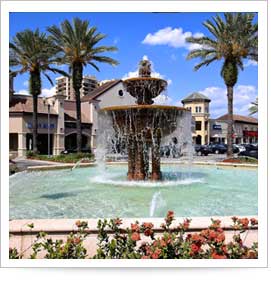
Since the housing market bubble burst, investors have been scrambling to scoop up as many low-priced foreclosure homes as possible. Indeed, there are many advantages to buying a foreclosed property – but there are many disadvantages, too. Instead of putting all of their eggs in one basket, savvy investors should investigate the possibility of buying short sales. Short sales bring many distinct advantages to the table that foreclosures simply do not. The pros include attractive selling prices, better conditions, access to information about the home, and a quicker overall process are some of the chief benefits of buying a short sale.
Competitive Price
Although it is not always the case, many short sales come along with competitive low price tags. Since the bank is already agreeing to take a loss on the home, the asking price is usually far below market value. Without a doubt, competitive prices are the most-cited reasons for investors to look into short sales. The less money that you have to part with from the get-go, the higher your profitability is likely to be. By becoming well-versed in how the short sale process works, investors can make some very good deals on such transactions.
Better Condition
Investors who have purchased many foreclosures in the past are all too familiar with the mess that is often left behind with such properties. Disgruntled home owners often trash their homes before banks officially take possession of them. In turn, investors must spend considerable amounts of time and money on repairs in order to make such properties marketable. Since home owners are involved in the short sale process themselves, the odds that they will ransack their own home is much lower. Instead of having to move out in an unhappy hurry, sellers usually stick around to see the process through – and they keep their homes in much better shape!
More Information
Buying a foreclosed home from a bank often leaves a lot of blank spaces for investors to face. After all, the bank hasn’t been living in the house – it was merely supplying the financing for it. There is no personal connection there, so the investor cannot get information about the home’s unique history. With a short sale, though, an investor can usually still pick the brains of the seller in order to find out less tangible, but still vital, information about the house.
Less Negotiation
When a bank tries to market a foreclosure, it still has the tendency to haggle back and forth with potential buyers. After all, the foreclosure process has cost the bank a lot of money that it would like to recoup. During the short sale process, most of the heavy-hitting negotiating occurs before the investor even enters the picture. The bank and the seller come to an agreement about what the property’s asking price will be. While this may leave less “wiggle room” for an investor, it also spares him the sometimes arduous experience of going through a long, drawn-out negotiation phase.
Investors Can Benefit from the Short Sale Process
Although the advantages and benefits of a short sale may not be readily apparent to an investor, the truth is that they are very real. It is important to bear in mind, though, that not all short sales bring these benefits to the table. Investors should take their time while investigating short sales in their local areas in order to find the ones that have the most reasonable terms. Finding a short sale that will allow for exceptional profitability is perfectly possible. Investors simply need to do a little homework before delving into the process. This homework should start with finding a qualified real estate agent to walk you through the process.
To view short sales in the Orlando area currently on the market, please visit www.YourOrlandoRealty.com. Or, for more information on the benefits of short sales, please contact us today for more information.





